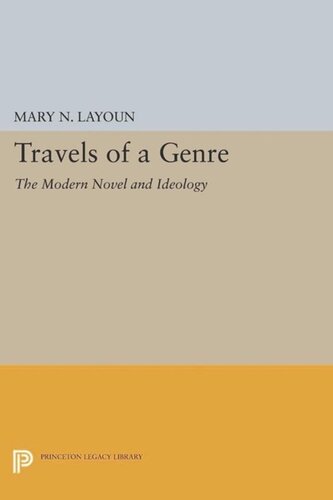

Most ebook files are in PDF format, so you can easily read them using various software such as Foxit Reader or directly on the Google Chrome browser.
Some ebook files are released by publishers in other formats such as .awz, .mobi, .epub, .fb2, etc. You may need to install specific software to read these formats on mobile/PC, such as Calibre.
Please read the tutorial at this link: https://ebookbell.com/faq
We offer FREE conversion to the popular formats you request; however, this may take some time. Therefore, right after payment, please email us, and we will try to provide the service as quickly as possible.
For some exceptional file formats or broken links (if any), please refrain from opening any disputes. Instead, email us first, and we will try to assist within a maximum of 6 hours.
EbookBell Team

4.1
80 reviewsIf the modern Western novel is linked to the rise of a literate bourgeoisie with particular social values and narrative expectations, to what extent can that history of the novel be anticipated in non-Western contexts? In this bold, insightful work Mary Layoun investigates the development of literary practice in the Greek, Arabic, and Japanese cultures, which initially considered the novel a foreign genre, a cultural accoutrement of "Western" influence. Offering a textual and contextual analysis of six novels representing early twentieth-century and contemporary literary fiction in these cultures, Layoun illuminates the networks of power in which genre migration and its interpretations have been implicated. She also examines the social and cultural practice of constructing and maintaining narratives, not only within books but outside of them as well. In each of the three cultural traditions, the literary debates surrounding the adoption and adaption of the modern novel focus on problematic formulations of the "modern" versus the "traditional," the "Western" and "foreign" versus the "indigenous," and notions of the modern bourgeois subject versus the precapitalist or precolonial subject. Layoun textually situates and analyzes these formulations in the early twentieth-century novels of Alexandros Papadiamandis (Greece), Yahya Haqqi (Egypt), and Natsume Soseki (Japan) and in the contemporary novels of Dimitris Hatzis (Greece), Ghassan Kanafani (Palestine), and Oe Kenzaburo (Japan).
Originally published in 1990.
The Princeton Legacy Library uses the latest print-on-demand technology to again make available previously out-of-print books from the distinguished backlist of Princeton University Press. These editions preserve the original texts of these important books while presenting them in durable paperback and hardcover editions. The goal of the Princeton Legacy Library is to vastly increase access to the rich scholarly heritage found in the thousands of books published by Princeton University Press since its founding in 1905.